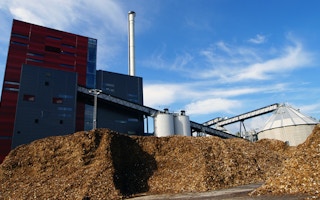Europe has the technology and the raw material to make a big cut in the amount of oil its transport uses, researchers say. But it will fail to reap the benefits on offer unless the European Union comes up with more radical policies.
A report, Wasted: Europe’s Untapped Resource, says the continent has significant unexploited potential to convert waste from farming, forestry, industry and households into advanced low-carbon biofuels, saving more than a sixth of the EU’s expected total fuel consumption for road transport 16 years from now.
But it says the conversion will not happen unless EU policymakers give greater priority to sustainability and to the need to lower the dependence of transport on high-carbon fuels by 2030.
The research which produced the report was carried out by the International Council on Clean Transportation (ICCT) and NNFCC, a UK research consultancy. The project was supported by a group of companies interested in introducing new technology, including two airlines, British Airways and Virgin, and by WWF, BirdLife Europe and several other environment NGOs.
“
If all sustainable waste from farms, forests, households and industry is used for transport fuels, that could make enough to replace about 37 million tonnes of oil annually by 2030 – the equivalent of 16 per cent of the EU’s road transport fuel demand by then
The report says that if all sustainable waste from farms, forests, households and industry is used for transport fuels, that could make enough to replace about 37 million tonnes of oil annually by 2030 – the equivalent of 16 per cent of the EU’s road transport fuel demand by then.
Safeguards needed
It also says that so long as the new fuels came from sustainable sources, they would produce less than 40 per cent of the carbon dioxide emissions from fossil fuels. Using them would inject up to €15 billion (US$21 bn) of extra revenue into the rural economy every year and create up to 300,000 new jobs by 2030.
The sorts of wastes that could be used include straw and other crop left-overs, forestry residues, municipal solid waste and used cooking oil.
But the report carries a warning too: safeguards would be needed to ensure the waste was obtained sustainably, including land management methods to protect biodiversity, water and soil.
And the benefits of biofuel from waste would have to be paid for. The report says some combinations of feedstock and technology would need short-term financial incentives, although others are already close to being competitive and would need little more than certainty about policy.
Easier challenge
The authors say cautiously that the research shows it is possible to develop a biofuel industry based on farm and forest wastes “which in the case of the cheapest feedstocks could become cost-competitive with only modest incentives…” Biofuel from other wastes might need different levels of subsidy.
Chris Malins led the analysis for the ICCT. He said: “Even when taking account of possible indirect emissions, alternative fuels from wastes and residues offer real and substantial carbon savings. The resource is available, and the technology exists – the challenge now is for Europe to put a policy framework in place that allows rapid investment.”
David Turley of the NNFCC, who led the economic analysis, said advanced biofuels from agricultural and forest wastes would require “little or only a modest additional incentive” to stimulate production at prices comparable to those of current fuels made from specially-grown crops.
The report concludes that while trying to use all the available waste might be thought optimistic, achieving just 2 per cent of current EU road transport fuel use in 2020, as suggested by the European Parliament, would be less challenging.
Even that more modest aim, the report says, would still add about €163 million (US$224 m) in net revenues to the agricultural sector and €432 m (US$594 m) to the forestry sector. It would also generate an extra 37,000 permanent jobs in the rural economy, and 3,500 more in biofuel refineries.

















